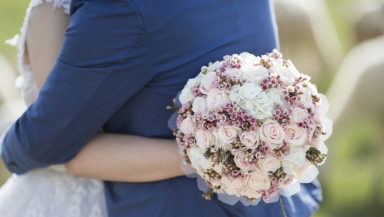
In 2018, the average age for marriage for opposite sex couples in the UK was 38.1 years for men and 35.8 years for women. The age at which a child can legally have sex is 16, a fact reflected in the current legal age for marriage, which is also set – with parental consent for those under 18 in England and Wales – at age 16.
It may then be thought that the comparatively late average age for embarking on matrimony in the UK reveals a perhaps surprising, but not unwelcome, degree of hesitancy.
Marriage is, after all, a serious business requiring, if it is to endure, faithfulness and commitment. That said, society, in its overall approach to marriage, is clearly changing, as reinforced by data released by the ONS in 2019, showing that for those aged 16 to 29 years, 69.2% of couples that year chose co-habitation over marriage.
All of which is interesting, because the new Marriage and Civil Partnership (Minimum Age) Bill which has just completed its passage through the Commons, seeks to set a minimum age for marriage in England of 18 .
One might be excused, in light of the above data, for thinking there isn't really any need for raising the minimum age for marriage, but according to the Bill's proposer, Conservative MP Pauline Latham, it is aimed at preventing forced marriage – which, for communities with a cultural tradition of arranged marriage, constitutes a major problem.
Marriage in the UK below the age of 16 is already of course, as said above, illegal, but there is apparently no law against unregistered purely religious or cultural ceremonies under this age. And according to Ms Latham, there have been many such cases of 'forced marriage' in recent years, some involving children as young as 7. To quote Health Secretary Sajid Javid, the current Bill will "make it crystal clear that child marriage is child abuse and it will never be tolerated in this country".
How exactly will this work, one wonders?
Under the Anti-social Behaviour, Crime and Policing Act 2014, forced marriage is already illegal in England, Wales and Scotland. Admittedly this relates to legal marriage, but it provokes the question: how will raising the legal age for marriage provide protection for children being forced into cultural – but not legally binding – unions currently not subject to legal restriction?
Even allowing for the fact that data compiled in 2018 revealed 19% of cases involved victims under the age of 16, how can raising the legal age for marriage help, when cultural and religious ceremonies are nevertheless allowed to go ahead?
Or are the proposers of the Bill perhaps suggesting that the UK now recognise religious and cultural 'weddings', operating outside the law, as valid marriage, despite the fact such arrangements confer no legal protection on the individuals involved?
It may well be thought by some, of course, that, whatever the reason, raising the legal age for marriage to 18 is no bad thing. Marriage is, after all, a serious commitment, requiring a degree of maturity and responsibility noticeably lacking in the majority of children in their teens. Anything that lowers the divorce rate has got to be good! But this doesn't actually address the issue, and in any case appears not to have weighed with the Bill's architects, their expressed focus being simply to prevent "conduct for the purpose of causing a child below the age of 18 to enter into a marriage".
This is surely pointless, because under the law as it already stands, they can't! Whatever the motivation, it is difficult to see how raising the age for marriage can possibly help – especially when, at the same time, we impose mandatory sex and relationships education in our schools, telling children from age six that they have a 'right' to have sex as soon as they feel ready, and actively encouraging them to experiment so that they can discover 'who they are'.
This too, to borrow Sajid Javid's description, is child abuse, and as a result we have epidemic levels of STIs amongst teenagers. How will they be helped, or indeed in any way affected, by telling them they can't marry until they're 18, when we encourage them to have sex as soon as they hit puberty?
Forced marriage is clearly abhorrent and is rightly already illegal in the UK, at any age. But perhaps a better way to try and tackle the all too evident problem of coercive cultural tradition would be to re-establish moral values within society as a whole, encouraging such things as sexual purity, commitment, faithfulness, and self-control - on the back of which we could then more easily deal with oppressive and discriminatory cultural arrangements, and with those who sexually exploit and abuse the nation's young.
As it is, this Bill would appear to have little chance of dealing with a problem that is, without doubt, a stain on our society.













